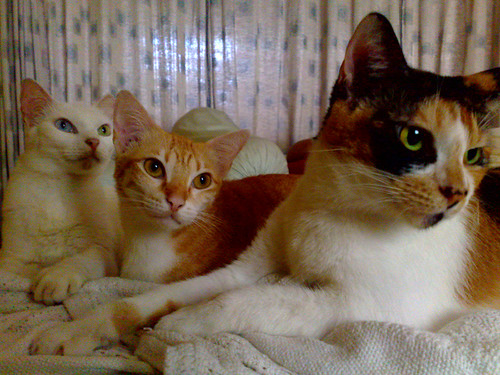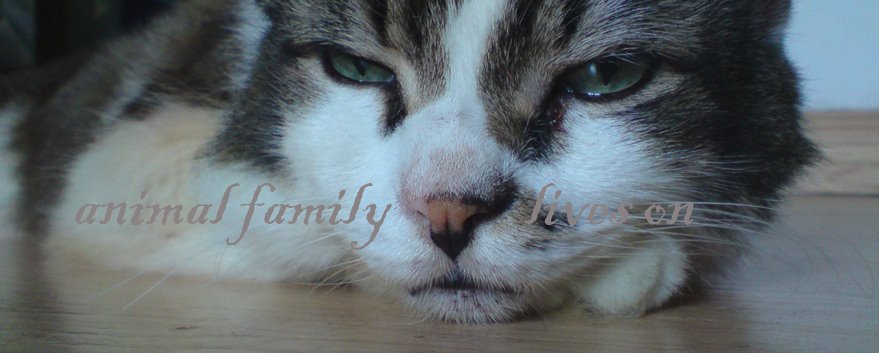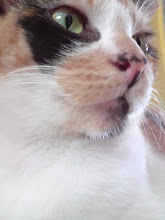Stray management is such an interest. You just have to look at some of the posts in STOMP to see how it polarises. Cries for compassion for strays are met with cries for compassion for humans who are affected by them.
But can we really afford to contain polarising issues while we wait for social and cultural tides to change? Environment issues had the same bad rap a decade ago. They have since entered the mainstream simply because the problems have become too big to ignore.
And before them, liberties for minorities, women, the sick and the poor arrived after enormous hardship and suffering. All the while, the privileged cried injustice, instability, loss of traditional values, inconvenience.
And they are still crying over inconveniences posed not just by animals but two legs - migrant workers, aids victims, homosexuals, ex-convicts.
All narrow interests? Maybe. But the lessons are there to be learnt. People thought there was something defective or culpable about the people they dominated by numbers or by circumstances, justifying their actions and they were proved wrong. They thought they could dominate the land and they were dead wrong.
People a.k.a voters don’t want to be pushed into change but the world around them is changing. 10 years to irreversible environmental damage. 50 years to the end of sea fish. The threat of scarcity and the chaos that follows is real. All the more, the guiding principles henceforth must be to Save, to Conserve, to Share and to Free, regardless. They have to become as habitual as it is to brush our teeth and that leaves little room for pickiness.
Save. Conserve. Share. Free

We may be all about cats, others about dogs, marine life yet others about children of ex-convicts with aids. This is not because our interests are narrow but that they are realistic. Different concerns require different strategies and approaches within the constraints of available resources, but what binds them are those very objectives: to Save, to Conserve, and to Free.
To Share? Maybe we still don’t do it quite so well.
How then to hardwire Save, Conserve, Share and Free into the two legs?
The challengers to civil societies would be the first to tell you that these values are not new to them. They just don’t look past their in-group sensitivities when it comes to application. (All the more ironical when civil societies adopt the same attitude they are trying to fight.)
We all have it in us to do it
Then I pawed on this charming TED video on the discovery made by brain scientist Jill Bolte Taylor the morning she suffered a stroke. Like a true scientist, she didn’t panic, she said Oh cool, now I can study my own brain from the inside out.
She already knew about the very different personalities of the left and right brain. Simply put, the right brain is all about the now and how our senses gather and distill information about our environment, while the left is all about me, how I process information about the past and present to project a future.
She hemorrhaged in the left hemisphere, felt her grasp of language slip away and fascinatingly with it, her sense of self. Her right brain took over and she floated on a sense of blissful wonder at not knowing where her body started and ended. She was at one with the world.
Arguably, environmentalists, humanitarians and animal people feel that kind of intense connection with their surroundings everyday. It’s just how their brains work and they didn’t get a stroke to stumble on it.
Could the contemporary emphasis on right brain development evolve a new generation more in tune with the ground they stand on and all there is on it? Can it turn the volume of the self-seeking left brain down to become a people less worried about where they started and where they end?
Until then, it must be inconvenient for those who find others saving and conserving things that threaten their health, safety, aspirations, livelihood and decorum. There are bigger inconveniences ahead when the water rises, food prices rocket and the fish disappear. If they are not part of the solution, would they be part of the chaos?




1 comment:
Good post. Many people look down on animals because the majority of species (apparently) fail tests of self awareness, like being unable to recognize themselves in the mirror. I like how you suggest that the concept of "me" might not be such a great thing after all. For all we know, the evolution of self-awareness might be the source of self-centeredness, arrogance and myopia..all those things that have plagued society since the beginning of human history
Post a Comment